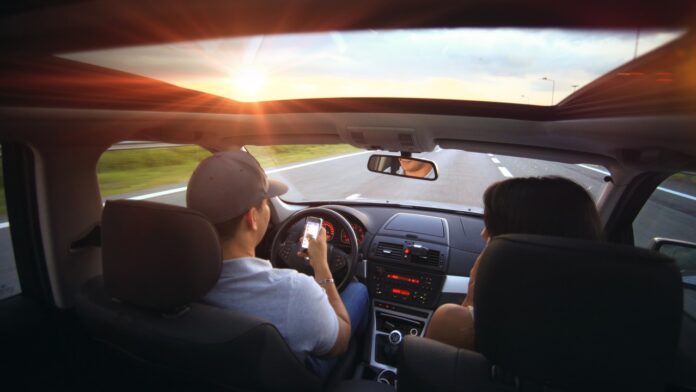Driving school owners in the Eindhoven region are expressing major concerns. Foreigners coming to the Netherlands can easily exchange their driving licenses from their home countries for Dutch ones through a special arrangement. This bypasses the need to take a driving exam in the Netherlands. As a result, driving school owners believe these drivers may not be adequately prepared for Dutch roads.
Basics
Merging onto the highway at 40 or 50 kilometres per hour, changing lanes without looking, and even driving against traffic are some common mistakes. “They don’t look; they just steer. They assume others will accommodate them”, says Walter Houbraken of Driving School Acht. His colleague John Dekker adds, “They are used to driving but differently. It’s often the right of the strongest. They frequently just do whatever they want”.
Knowledge workers can exchange their driving licenses without taking a Dutch driving test through a tax scheme from 1995. This scheme applies only to highly educated employees from outside the EU who earn at least 46,000 euros gross per year. For example, cleaners from India are excluded. The scheme aimed to attract more highly educated foreign employees to the Netherlands.
Ridiculous
Harun Kina, owner of Rijles 4U, is baffled by the arrangement. “It’s ridiculous. Some people really cannot drive. Among them are expats who can barely keep their vehicle under control”.
He has a theory about why this happens. “They often come from countries where they drive at ten kilometres per hour”. Since the beginning of last year, more than 3,500 driving licenses from people outside the European Union have been exchanged for Dutch licenses in Eindhoven alone. However, the municipality does not track how many of these are knowledge workers.
Although it’s not mandatory, some knowledge workers still opt for extra driving lessons after exchanging their licenses. “A few can manage, but you can count them on one hand. Eighty percent shouldn’t have a driving license at all. They think they’ll be ready after five lessons, but they don’t continue because they already have their license”.
At Dekker’s driving school, they give extra driving lessons to hundreds of expats every year. He recognizes them quickly. “They can’t drive. For instance, in India, you don’t have to do much to get your driver’s license. It’s nothing compared to what we have to do in the Netherlands to get a driver’s license. We are located here in ASML territory, and we see many people from India and Asia every day who have difficulty participating safely in traffic.”
Life-threatening
Walter Houbraken from Rijschool Acht has encountered these issues frequently. “Some people can drive well, but I once sat in a car with a lady on the highway, and it was extremely dangerous! She was swerving from left to right. I had to get out. Eventually, I took over and drove her home.”
Driving school owners believe the special arrangement for knowledge workers should be abolished quickly. Houbraken suggests a separate exam, “The CBR should test these drivers before their licenses are exchanged, similar to how it’s done with the elderly”.
If nothing changes, Dekker predicts the situation will worsen. ASML plans to add another 20,000 jobs in the region. “The upcoming expansion will increase traffic intensity, exacerbating the problem, especially in this area”.
Source: Studio040
Translated by: Seetha












would be interesting to see if there is data supporting the claim and percentage.
are driver who received their license via the 30% ruling exchange causing more accidents and such?
otherwise, this reads like a lobbying article by a prominent driving school that would obviously benefit of a law forcing people to take more classes; rather than a journalistic effort.
PS. i understand that a nice controversial title brings clicks, but ask yourself, is this the type of journalists you want to be?
I agree. The new headline makes it clear where the claim comes from. Thank you for alerting us.